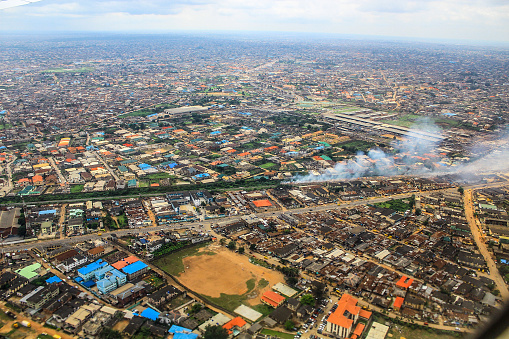Manufacturing in the Nigeria Economy
Manufacturing
Manufacturing in Nigeria’s economy has been doing remarkably well in recent years. This is partly due to government incentives to boost the sector. The government has reduced import tariffs and made local products more affordable than their imported counterparts. It also implemented discriminatory foreign exchange policies and cheaper funding to encourage local manufacturers.
Manufacturing output growth in Nigeria has fluctuated over the years, depending on forex availability and crude oil prices. A decline in the price of crude oil has adversely affected the sector. Imported machineries and inputs have also weighed heavily on the manufacturing sector. However, the economy is slowly recovering from the shocks and now has a healthy level of output.
Manufacturing in Nigeria’s economy has the potential to diversify the economy. The industrial sector was previously a thriving investment destination. However, the inconsistency in Government Policy has slowed investment. As a result, several companies have shut down or relocated to other countries. In addition, the country has experienced frequent tariff changes and a dichotomy between CKD and SKD in the auto manufacturing sector.
Public sector underutilization
Nigeria’s low unemployment rate, poor education system, and lack of employment opportunities have resulted in a reduction in the skilled labor pool. This has caused many educated Nigerians to migrate to other countries. As a result, the formal sector employs only a fraction of the workforce, and more than three-quarters of the workforce is employed in the informal sector. In contrast, manufacturing and construction businesses often employ low-skilled labor, and their productivity is low compared to other sectors.
This has hindered economic growth, and the COVID-19 pandemic has significantly constrained economic activity in the country. This trend must be checked to prevent an economic recession.
Oil-based economy
Nigeria’s oil-based economy has been a source of economic growth and stability for decades. It provides 90 percent of the country’s export earnings and 62 percent of the Federal and State Government revenue. However, the downstream sector contributes a much smaller share of the country’s GDP and has been the subject of recent policy interventions.
The country has made some reforms to reduce dependence on oil but it remains a major source of revenue for the federal government. While recent policy interventions are welcome, the real test is implementation. By increasing in-country petroleum refining capacity, the petroleum sector can better connect with the economy and contribute more to GDP.
The Nigerian government’s debts have accumulated over time due to government borrowing when oil prices were low. It has also suffered from instability in the form of military governments that resulted in policy instability and uncertainty. Military governments also facilitated a large amount of whole-sale looting of the state. Since then, the country has recovered some of its lost ground but remains vulnerable to the volatility of oil prices. As a result, corruption has been institutionalized throughout government.
Import dependence
Nigeria’s economy is largely import dependent due to its monocultural hydrocarbon industry, which provides 79 percent of the country’s crude oil and 10 percent of its natural gas. It also accounts for almost half of the government’s revenue and third of its banking sector credit. In addition, the sector provides 60 percent of all manufacturing output, with food processing and beverages accounting for the bulk of this output.
Oil is the most important export from Nigeria, accounting for 91.2 percent of the country’s GDP in 2014. However, this dependence on oil results in extreme economic instability, with only a small percentage of Nigerians benefitting directly from the country’s oil revenues. In addition, even though the country’s economy is growing rapidly, 60.9 percent of its population still lives under the $1.25/day poverty line.
The problem with relying heavily on oil exports is not just a problem of global supply. It’s also a matter of policy. The government has repeatedly imposed import bans on certain products and resorted to restrictions on the export of certain products. This strategy has sparked intense skepticism among policy makers. The Senate’s Adamu Aliero argued that the Comptroller’s Office did not have the authority to suspend the ban. Despite these criticisms, the Comptroller’s Office conceded that revenue had fallen below projections and that access to forex was the primary cause. Meanwhile, smuggling of rice across land borders increased after the lifting of the import ban in October.



